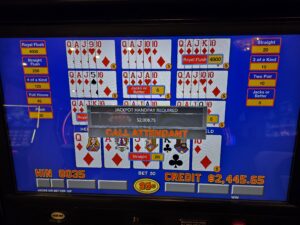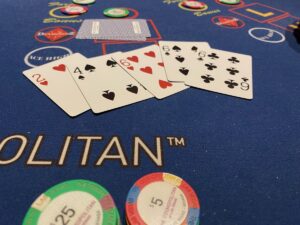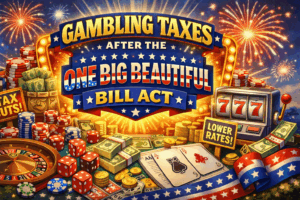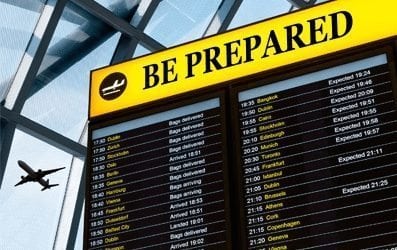
Stuff happens…all the time! Try as one might, there is no sure-proof way to prevent “stuff” from happening and, when it does in a foreign country, it can color one’s vacation in a negative way. (It is equally true that “an ounce of prevention is worth a pound of cure” – and prevention of travel missteps will be the focus of a future article. But, for right now, I want to focus on ways to be prepared for some of the most common examples of “stuff” that happens while traveling.
A Be Prepared Checklist
Any time my travels take me out of the country (and even sometimes when they don’t), I prepare a document with the embarrassingly unimaginative title, “General Information about X” (where “X” is the name of the country/ies I will be visiting. I can’t even begin to tell you how many times this document has saved me from uncomfortable situations, being cash-strapped, stranded or even running afoul of local laws. This document has 8 sections:
- Currency
- Credit/debit cards
- Tipping
- Telephone
- Security
- Medical
- Vocabulary
- Public transit

Currency
There are plenty of good apps one can use offline for currency conversion (XE currency is the one I use). But there are other issues related to foreign currency I include in my “General Information about X” document; e.g., best options for obtaining local currency, scams about which to be aware, converting back to one’s currency when one’s trip has ended, etc.
On Arrival
Since I rarely have local currency in my wallet when I land (unless it is left over from a previous trip; e.g., euros from a previous trip to Europe), I research the best option for obtaining currency at my arrival airport. For example, from my “General Information for China” document, I made note of the following:
“The best place to exchange currency at PEK is the airport’s arrival area. It’s located just before exiting the secure zone to enter the terminal. To the side, there is a Bank of China window which is open 24-7, 7 days a week and does not charge a transaction fee. It. Once in the terminal, there are extra charges for exchange at all banks.”
ATMs
Next, I summarize the results of research I have done about using ATMs in the country/ies I will be visiting. Although often straightforward, there can be idiosyncrasies; e.g., which banks add fees (unless one is using an ATM card that will rebate such fees; e.g., Charles Schwab – which I highly recommend) and whether those fees vary with the amount withdrawn (if they don’t, make fewer, larger withdrawals).
Scams
I also try to be aware whether there are any known, active scams involving currency in the country/ies I visit. For example, in China counterfeit currency can be a problem. Counterfeiting in China was so widespread they recently introduced brand new 100 yuan notes. These notes have special security features to counter the counterfeiters. So I list situations where this scam is most common (transactions at street stalls), some of the tell-tale indicators the bill one is being given is fake (the collar on Mao’s shirt should be noticeably grainy to the touch), etc.
Currency – When Your Trip Is Over
If you are reasonably certain you will be returning, put any leftover currency/coins in an envelope labeled with the name of the currency. I keep envelopes for “Euros” and “Hong Kong Dollars.”
If you have no plans to return, you will either want to convert any foreign currency you have accumulated back into your home currency or find a way to dispose of it. Save all ATM/bank/change bureau receipts received while obtaining foreign currency. In China, for example, you will need these receipts change Renminbi (Yuan) back into your local currency. Without the receipt indicating where and how you obtained the yuan, agents will not exchange for you.
As your trip nears its end, “spend down” your foreign currency by using it to leave tips (an article on tipping will be forthcoming) for hotel housekeepers or waitstaff (if culturally appropriate). Finally, twelve airlines participate in UNICEF’s “Change for Good” program by collecting leftover foreign currency/coins on international flights. You won’t get a receipt for tax purposes but you will have the satisfaction of knowing you made a contribution to a well-respected international charity.
Next Installment of Be Prepared: “Credit/debit cards”
More travel advice:
Manufactured Spend | Travel Money Without Spending A Dime
Travel Hacks | “Earn and Burn” – The Travel Hackers’ Credo
Book Review | World Travel Guide For Gamblers
I organize things; it's what I do! I enjoy the natural adrenaline high of travel as much as the next person but I also try to limit the likelihood that the surprises I experience along the way will be unpleasant ones. To this end, I spend more hours than most preparing for each trip. Fortunately for me, I enjoy the anticipation of travel as much as the experience of it. A primary objective of my blog contributions will be to share with my readers the "systems" and approaches I have developed over the years that have allowed my bride of 34 years and me to cross off a majority of our bucket list items. I've been a minister, nonprofit agency executive, professor and consultant. My "job" in retirement is planning our next trip.














